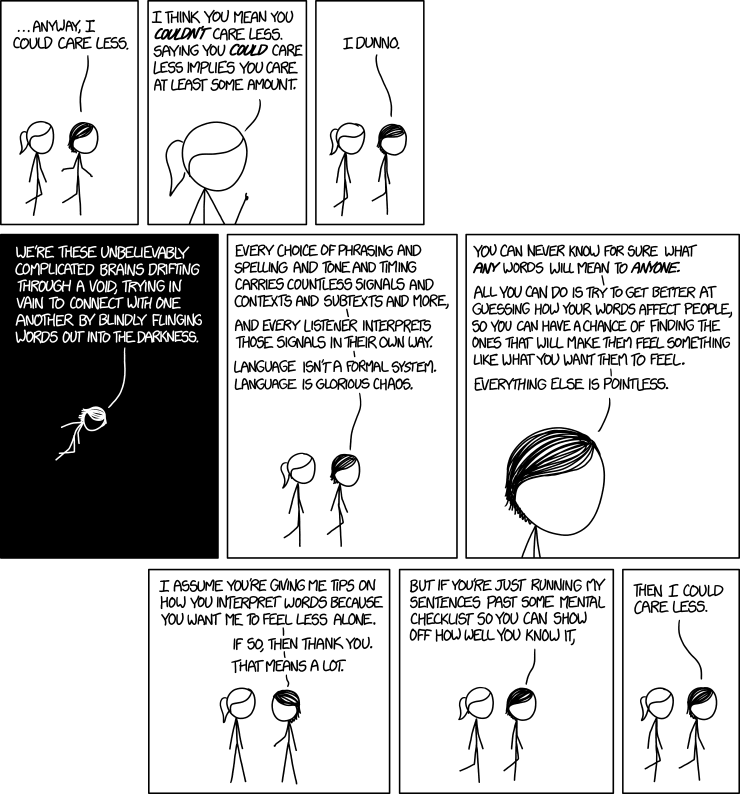
The interesting thing about this comic is that the author expects us to get the joke that the character claims we can not understand. She uses words to explain why communication can’t happen and does it in a visual medium. Let that roll around in your mouth for a moment before you eject it into the spit bucket.
This is post-modernism, or as Tim Keller calls it, late modernism, which I think is more accurate. Post-modernism would imply that we’ve left modernism and moved on to some other idea. We haven’t done that as the practical worship of science shows.
Yet, despite the verbal protests, words have meaning. Communication is possible. Understanding, though imperfect, is achievable because God spoke. He spoke the universe into existence. That universe understood the words of its creator and complied. The very created universe, then, continues to communicate. Day to day pours out speech, night reveals knowledge (Ps. 19:1-2). God’s invisible attributes are clearly seen in what he’s made (Rom. 1:20). God’s words are the universe and they continue to speak.
He made humans in his image and he spoke to them, expecting them to understand and obey. He told Adam, “Any tree but that tree” and Adam understood. God expected Adam to explain that to Eve. She got it a little wrong (Gen. 3:2-3) but she got it.
Even after the fall, God continued to communicate and expect comprehension. “Long ago, at many times and in many ways, God spoke to our fathers by the prophets, but in these last days he has spoken to us by his Son, whom he appointed the heir of all things, through whom also he created the world.” (Heb. 1:1-2) He gave us his gospel, the words of life (John 6:68), and told us to speak them throughout the world. He expects people to understand them.
Communication is possible because our communicative God created us to communicate. God has always existed as three distinct persons in one God. He has always had an other to communicate with. Communication is part of who God is and God is reasonable and rational so that which he creates reflects that. And yet, the author of the cartoon above, indeed post-moderns in general, insist that communication is chaos and shaded by personal experience, all the while using God’s gift of words to do it. And they expect us to get it. The irony is inescapable.

